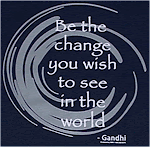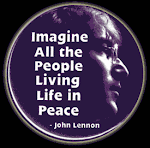May 23, 2006 was an unusually hot day in San Francisco. The graduating class of San Francisco State University (SFSU) was sweating it out under itchy, Barney-purple robes and ill-fitting cardboard caps. As my journalism colleagues and I passed bottles of Hennessy and champagne amongst ourselves, we fantasized about the glory that would be the freedom of life after college.
As I stumbled across the stage, shook hands and took pictures with random SFSU board members, I remember thinking to myself that my ideal life was just beginning. Everything was going to fall into place somehow; I wasn't worried about a thing.
Had I known then what I know now about life after college, I would have been a little less drunk, and a lot more worried.
Suddenly, after 18 years of an institutional regime, there are no limits, no means of self-assessment, and nothing to fall back on. It leaves a certain feeling of emptiness that's both refreshing and anxiety-ridden.
The best way to sum up my experience this past year-and-a-half after graduation is to say that I must have missed something. I must have been absent on the day when they handed out manuals entitled, "How to Make Good Decisions for the Rest of Your Life Starting the Very Next Day After Graduation."
The fear of not making the right decision kept me from going anywhere, or doing anything new, for months after school ended. It felt like I was in a race, my feet were in the blocks, the starting bell went off, but I just couldn't take off because I didn't know where I was going.
Now I know why people go to grad school. For one, as long as you are in school, the government can't harass you to pay back your loans (which they usually start collecting exactly six months after commencement). And secondly, it is the ultimate way to prolong the harsh adjustment into real life.
Sean Aiken, a recent college graduate from Canada, is in the last week of his fifty-second job in 52 weeks. He came up with the idea of trying a different job every week to find out what his real passion is. Aiken received a lot of press for this experiment, and was featured in a story on Good Morning America, which prompted "career experts" to debate whether our generation's apprehension to buckle down to a career is a result of the awareness of more life-style options than Generation X, or just plain laziness.
I've had four jobs this past year. I thought I was finally moving forward when I accepted a promotion from the retail store to office manager/ PR director for a large apparel company. I didn't know that kissing ass was in my job description when I accepted the position, but I soon found out what was expected of myself and others at entry-level. When I told my friends and older siblings how disappointed I was with the office politics, they basically said I should get used to it because the situations I was encountering were basically standard in all offices.
I quit after six months and for now am back to waiting tables and serving cocktails to pay my rent. I actually found some relief in knowing that I could cross one career possibility — working in a corporate office environment — of my list.
There are lots of websites geared at post-collegers, but most just offer advice like, "Pick a career path you will be happy with." If I knew the answer to that, I wouldn't have much of a problem. And the truth is, post-college advice is useless because the way to navigate through this transitional phase is simple: trial and error.
This website is actually helpful because it offers message boards that prove most recent grads feel similarly about the confusion and distress of post college life.
Today's generation is predicted to change careers more than any previous age bracket. We have more options for life paths than our parents did, and we should take pleasure in that, instead of being intimidated by it. What's the big rush anyway?



























No comments:
Post a Comment